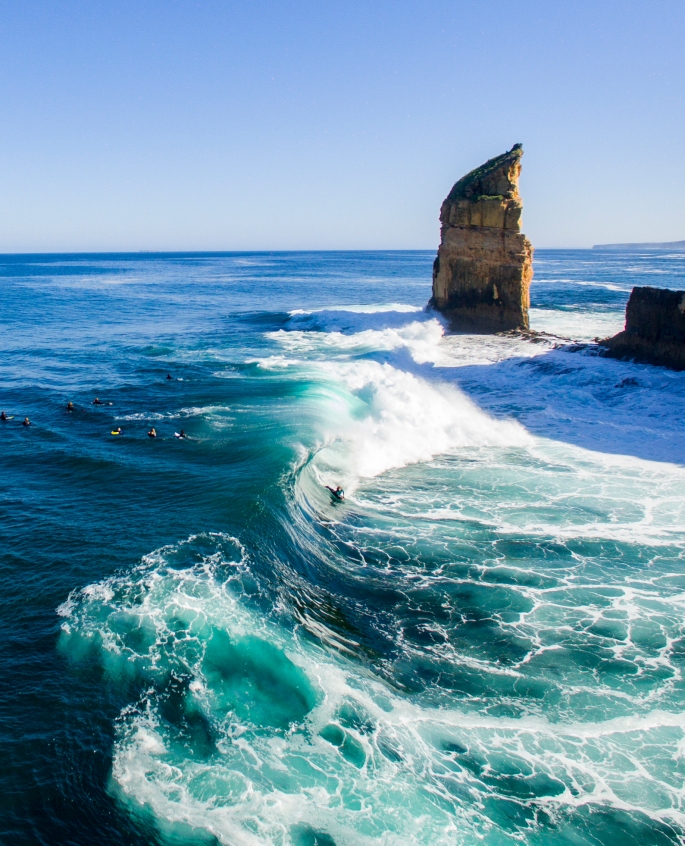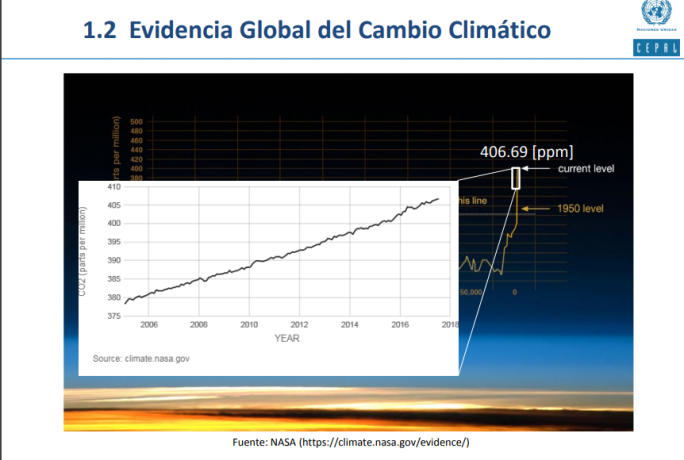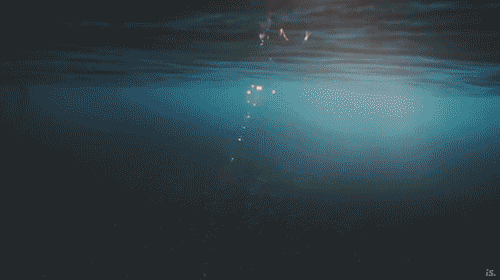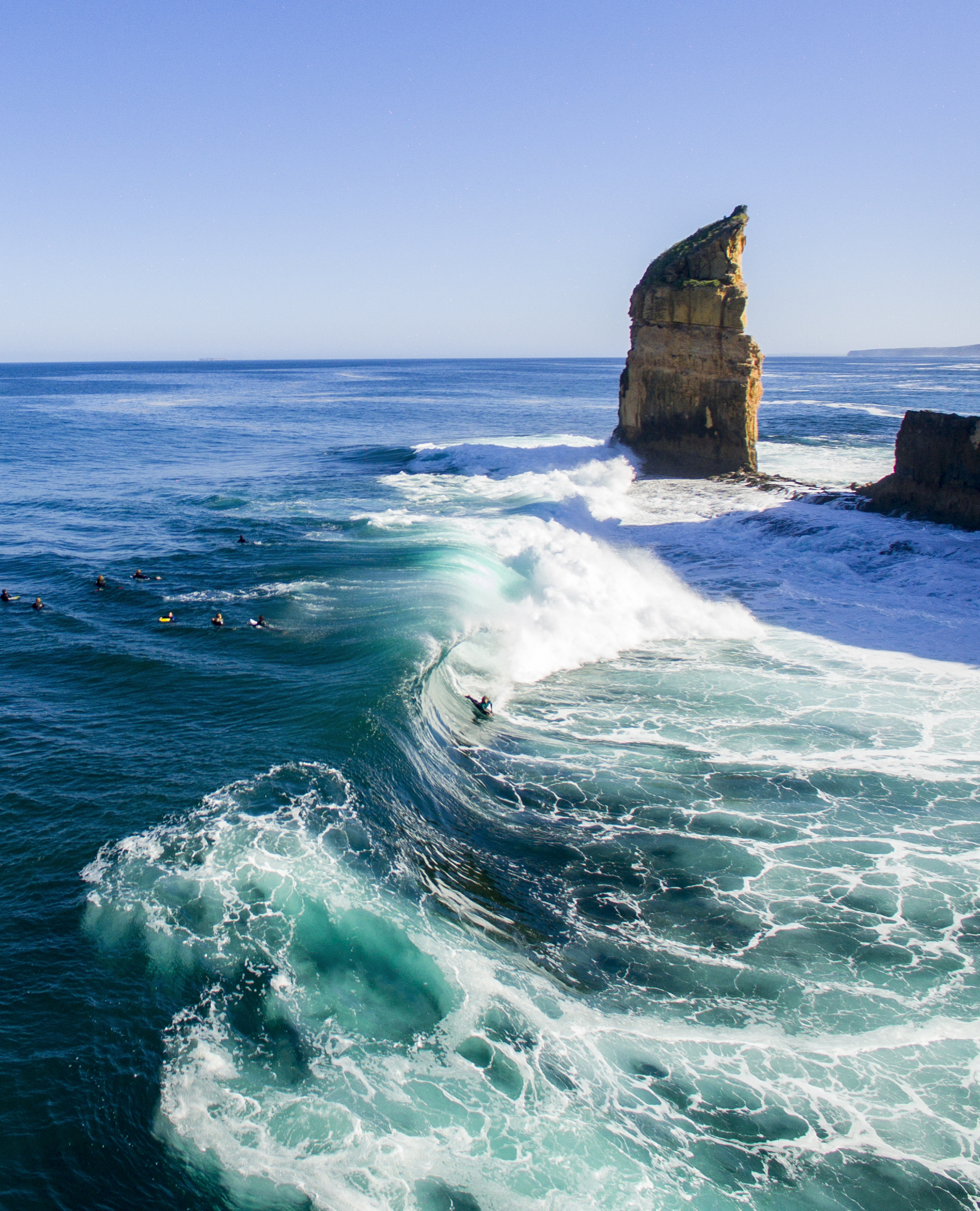We especially want to thank Jesse Ehlers, who let us use one of his incredible pictures of his land. He is a South Australian photographer at The Times Victor Harbor and owner of south coast aerial images. Go check his profile on Instagram.

Climate change is afecting the oceans and its biodiversity. Marcelo Acha (Biologic Science) and Alberto Piola (Oceanography) share their knowledge about this issue.
By Iary Arroba
Oceans have been here since ancient times. They shape most part of the surface of the planet and feed an 8% of the world wide population. People are used to visit the sea during holidays and often sit to contemplate it, but they don’t see beyond the surface and, therefore, they don’t know the changes that are happening in it. People are not conscious about how the ocean affects human life and either know how important it is to take care our seas, that is why is necessary that communities know the problematics so they can start acting.
One of the most controversial topics of the last years has been the climate change. A lot of politicians make an effort on denying something that is evident, saying that tempetures didn’t increased, that global warming does not exist. But that can be prove easily by seeing how icebergs are dissapearing, how each summer breaks a new record in highest tempeture and, because of it, winter feels colder than years before. Or also, you can see a record from de NASA in which it is shown the increase of the carbon dioxide in the atmosphere since the industrial revolution.

Once confirmed by the NASA that the climate change does exist, we can start asking other questions. We know that the rise of tempetures are not good for the environment, but how does it affect the sea?
“The ocean is a central element of the climate system because it is its largest reservoir of hit. It redistributes the hit it receives unevenly from the sun and because the oceanic circulation is slow, with time scales from hundreads to thousands of years. That is why it is said that the ocean is the memory of climate. There are several impacts on the properties of the ocean. These effects in turn exert changes in the climate, or a feedback because the ocean has absorbed around the 25% of CO2 introduced by the man into the atmosphere from the beggining of the industrial revolution. Such absorption had lowered the pH of the sea water, turn it into an more acid habitat, creating a risk for the variety of organisms due to the greater dissolution of the calcium carbonate”, said Alberto Piola, Bachelor of Oceanography and member of «La Liga del Mar».
According to OCEANA, the greatest international organization of conservation of the oceans in United States, the rise of the acid produces a reduction of the quantity of carbonate ions in the water. This is important because a lot of marine animals need carbonate ions to the calcic carbonate, which is essential for the skeletons formation and shells. The species most affected are the reefs, oysters, clams, crabs and lobsters. Besides the pteropods, which are little marine snails, that feed many other fish, whales and also birds.
Not only are these species affected, but also are reefs. The damage in them is disturbing due to a quarter of all marine species that depend on the coral reefs as shelter, food supply and spawning area, where the amphibians put the eggs.
“The answer to the living beings to the climate change of the ocean can be very diverse”, said Marcelo Acha, graduated in Biologic Science and Principal Investigator of CONICET. “Some of the expected changes that count with more backup of the scientific community are the displacement towards the poles of tropical and subtropical water species due to warming; decrease in plant production in some places; problems in calcium carbonate fixing organisms because of the predicted decrease in water pH (acid); alteration of the synchronization of the production and reproduction cycles of various species”, ended.
Global warming directly influences the oceans, as well said Marcelo: “The ocean and the atmosphere are two inseparable systems that constatly exchanged energy and matter”. And the ocean affects us, more than what we believe. If fishes and crustaceans populations decrease more and more, this will affect negatively to millions of fisherman and, in consequence, to the nutrition of millions of people. For all these reasons, it is neccesary that we take conscience of how important it is to take care of oceans.
In Argentina the 36% of the territory is sea and just the 2,6% is protected. The movement «Sin Azul No Hay Verde» (Without blue there is no green) impulses the creation of National Marine Parks. It currently counts with just two parks: the Yaganes, bigger than Formosa and the Namuncurá Banco Burdwood 2, as big as Misiones. The target of this movement, along with the one of «La Liga del Mar», is to protect the 20% of the Argentinian sea for the 2020. “La Liga del Mar is a group of people interested in the conservation of the sea from different points of view, from the aesthetics to the resources”, said Alberto. When I asked him if he thought it was possible to protect the 20% of the sea for two years from now, in 2020, he answerd: “The political engagement with the international agreements seems quite solid, but bearing in mind the interests in game, the election of the areas will require a mature debate in which they should participate all the actors, including the experts”.
The message of Alberto to the society, as many others scholars of the sea, is clear. “The society in general must engage with the preservation of nature and push the ones who take desicions to make the right actions that guarantee that preservation to the future generations. That is our obligation but also it will be our most important legacy”, said the oceanographer.
While Marcelo added: “I believe that our society must interest more for the sea and understand the benefits we receive from it. We must not think only in the capture of fishes and seafood but also in other aspects of which we are not conscious. Or the mitigation of the greenhouse effect due to the absorption of CO2 by the sea. Also, it must be taken into account other aesthetic or recreational benefits such as the contemplation of the ocean, spending holidays in the beach, admiring yourself with whale watching, sea lions and birds. We receive a lot from the sea, but taking conscious of it demands good information and difussion plans.»

Climate change and increase of acid in the ocean exist because of the human emissions of carbon dioxide, mainly produced by the burning of fossing fuels for the transport, for some industrial processes and for the production of electricity. The change can only be produce if we change our fossing fuels for any other source of alternative energies. We must start taking care of our oceans, for our own sake and our planet’s. If we don’t start producing our resources in a healthy and reasonable way right now, then it will be too late. Because without ocean there is no green and without green there is no life.

